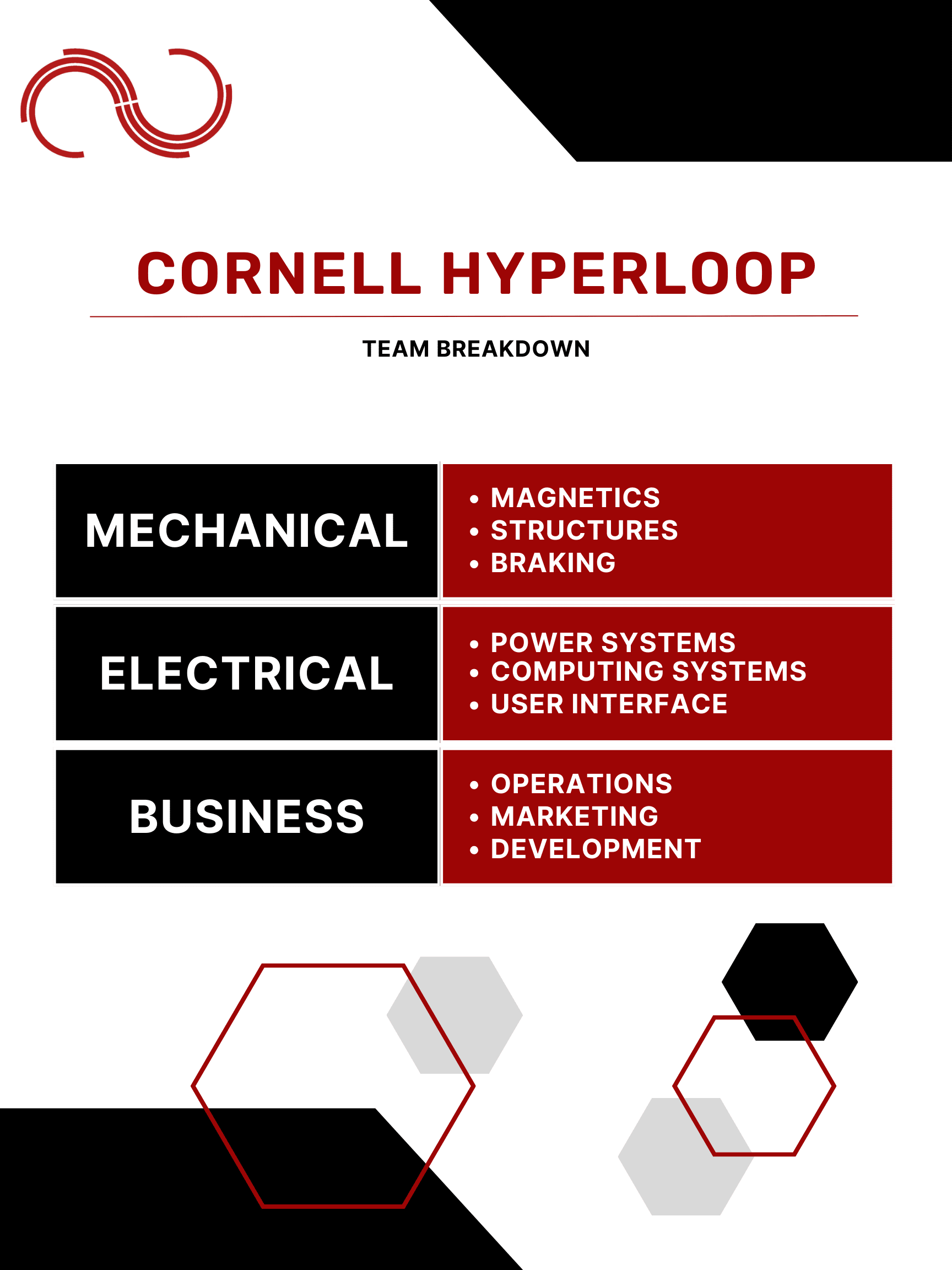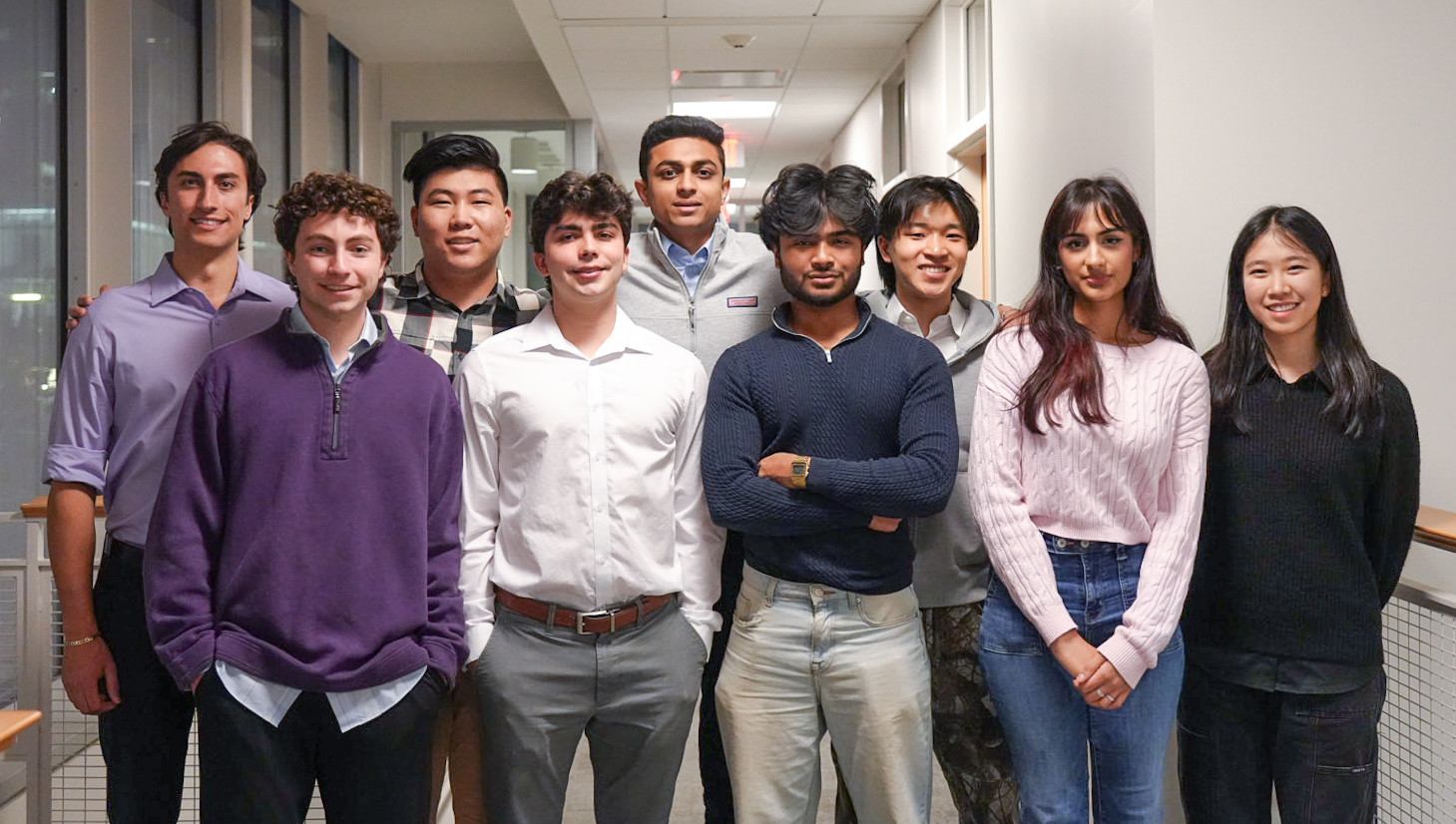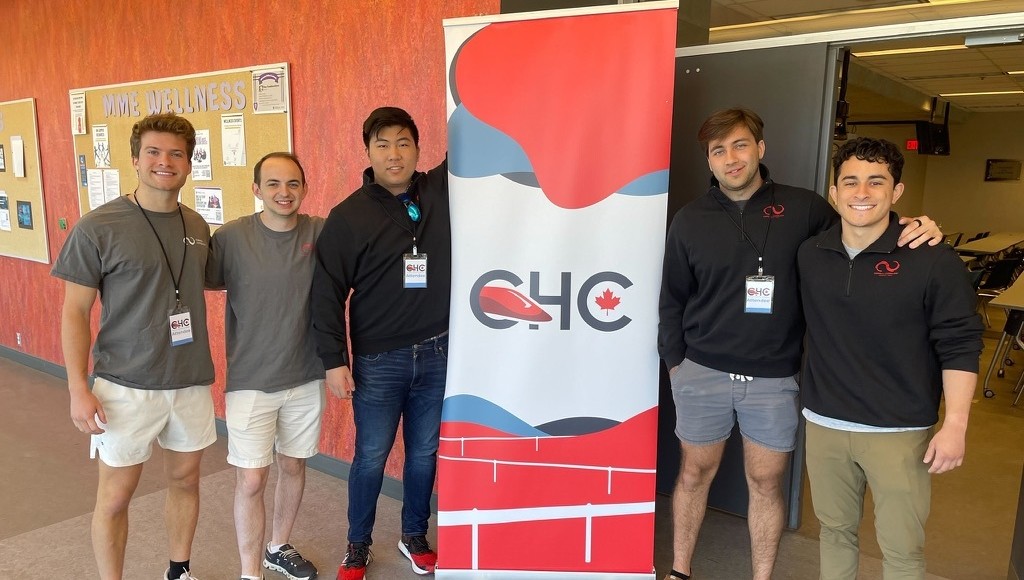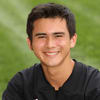Cornell Hyperloop: We Revolutionize Transportation
Back to Competition
Cornell Hyperloop is an engineering student project team that designs and builds a hyperloop pod, a novel form of transportation in which pods are sent through vacuum-sealed tubes at hundreds of miles per hour. After being denied competitions over and over again due to the COVID-19 pandemic, we were finally able to travel to competition last summer. For the first time in team history, we competed in the Canadian Hyperloop Competition in June, gaining valuable insight into what we need to improve upon to be successful for next year’s competition.
Unfortunately, the costs of pod improvements are expensive, not to mention the additional costs associated with attending the competition in the first place.
How Much Your Donation Means to Our Team
Your donation will help to fund the costs of hotels, pod transportation, and pod research that is needed to ensure our team’s success in competitions abroad. Without donations, our team would be unable to participate in competitions, a component of our design process that is crucial to our team's long-term objectives. Your contributions are greatly appreciated, and we would love to welcome you to the Cornell Hyperloop family and to update you on our success in these competitions!
Our Amazing Team
Cornell Hyperloop has over 60 undergraduate team members, organized into three teams.
The Cornell Hyperloop team is dedicated to investigating new technology for the general implementation of Hyperloop in addition to building a subscale Hyperloop pod to compete in competitions. We aim to innovate, design, and build a sustainable transportation pod from conceptualization that travels at speeds beyond those of conventional transportation modes. Our goal is to participate in the premier Hyperloop conferences and compete in track demonstrations and subsystem competitions.

Electrical Team
The electrical team is responsible for constructing and maintaining the pod’s electrical system. The team is divided into 3 subteams. The power systems subteam is in charge of our pod’s electrical components and battery supply. The computing subteam manages all of the embedded software. The user interface subteam maintains our electrical system’s GUI and is responsible for the website. The majority of the electrical team is electrical engineers and computer scientists.
Since the team works heavily with both software and hardware, they employ a variety of tools. On the software side, the team uses Python to develop our embedded systems and leverages the networking protocol called ZCM. On the hardware side, KiCAD and physical benches are used to develop the circuits. Currently, the electrical team is working on assembling a high voltage battery pack in its management system in conjecture with its voltage frequency drive and to implement sensors in the mechanical tests and the on-pod systems.
Mechanical Team
The mechanical team is responsible for developing all of the mechanical subsystems on the pod. This team is divided into 3 subteams. The magnetics subteam works on our propulsion, levitation, guidance, and stability systems. The structures subteam focuses on the chassis, aeroshell, systems integration, and cooling systems. The braking subteam specializes within frictional and magnetic braking systems. The overarching mechanical team is composed of a variety of engineering majors, but mostly mechanical and civil engineers.
The mechanical team’s primary design tools are SOLIDWORKS, ANSYS, and MATLAB. They employ a variety of manufacturing techniques, including traditional machining, welding, CNC, 3D printing, and carbon fiber composite structures. Currently, the mechanical team is finding ways to successfully implement their electromagnetic projects, manufacture the carbon fiber aeroshell, and create our own magnets for levitation.
Business Team
The business team is responsible for supporting the team’s business-related initiatives. The business team is divided into 3 subteams. The operations subteam manages budgeting, bill of materials, procurement, and competition planning. The development subteam organizes sponsorship outreach and fundraising. The marketing subteam maintains our team’s social media presence, and merch. The business team is mostly made up of computer science and business students.
The business team uses Adobe Creative Cloud to produce marketing materials for the website and our social media. We also use Excel and spreadsheets to manage the team’s finances. Currently, the business team is focused on procuring the necessary parts for the pod and raising money for the purchase of these parts and to cover the costs of competitions.
Our Fundraising Goal
Throughout this fundraising campaign, we hope to raise money to continue funding the groundbreaking research our members are conducting. By contributing to our cause, you are helping to fund not only the tools and materials we continually use in our lab, research, and engineering teams, but you are also ensuring our workspaces are kept up-to-date with the most recent technology.
We are calling on you to become partners in our vision to revolutionize the transportation industry! As alumni, friends, and newcomers to the Hyperloop team, we hope that you will support our cause and help us expand our horizons.
We thank you for your support!
For more information about Cornell Hyperloop, visit us online at https://cornellhyperloop.com/.
$10
Initiator
A $10 donation will allow us to subsidize the cost of branded team apparel for one team member.
$25
Groundbreaker
A $25 donation will cover registration fees for an additional member to attend competition.
$50
Pathfinder
A $50 donation will enable us to purchase high-quality materials such as bearings, fasteners, washers, and screws.
$100
Pioneer
A $100 donation will cover the cost of food for one team member during a conference.
$250
Innovator
A $250 donation will fund 3D printing for electrical enclosures, as well as faraday cage modifications.
$500
Disruptor
A $500 donation will provide lodging for over half of our members during an international hyperloop conference.
$1,000
Visionary
A $1,000 donation will cover the cost of manufacturing our complete aeroshell redesign.
$2,500
Founder
A $2,500 donation will fund round trip flights to an international hyperloop conference for two team members.






